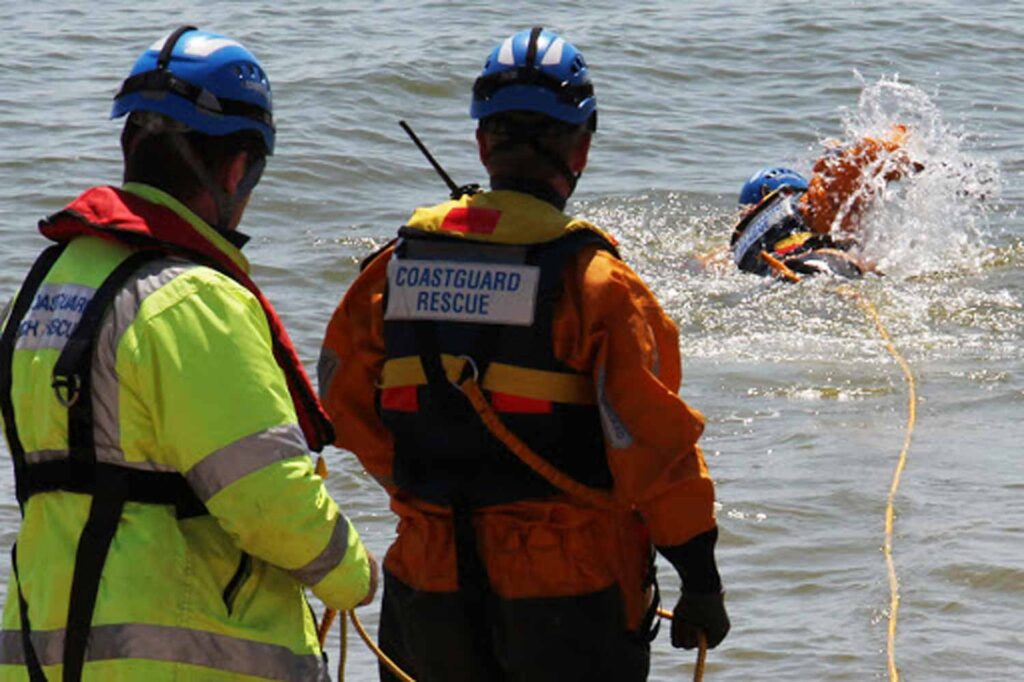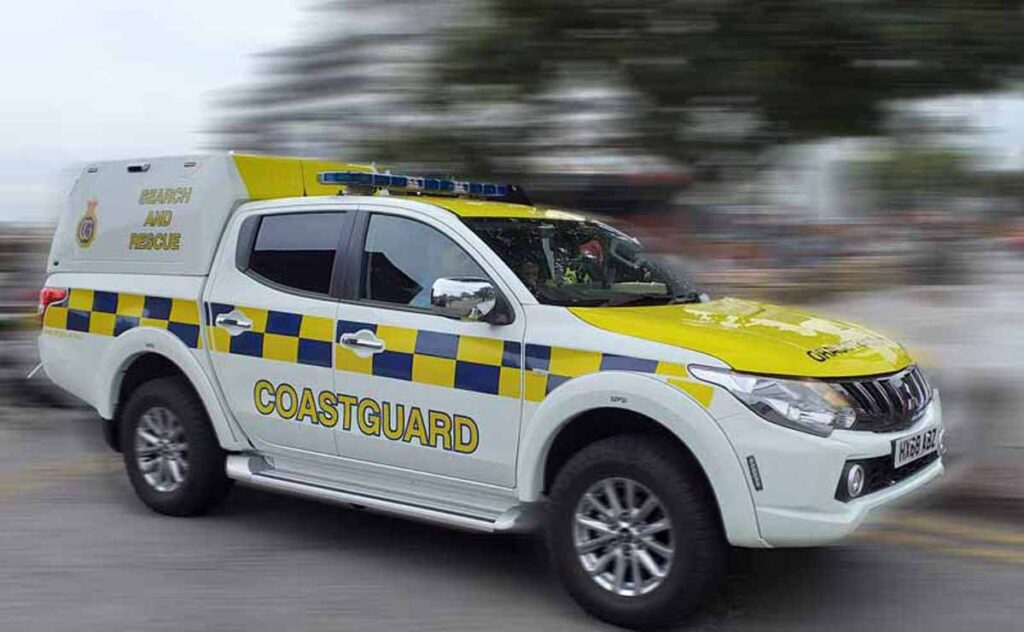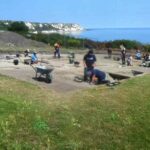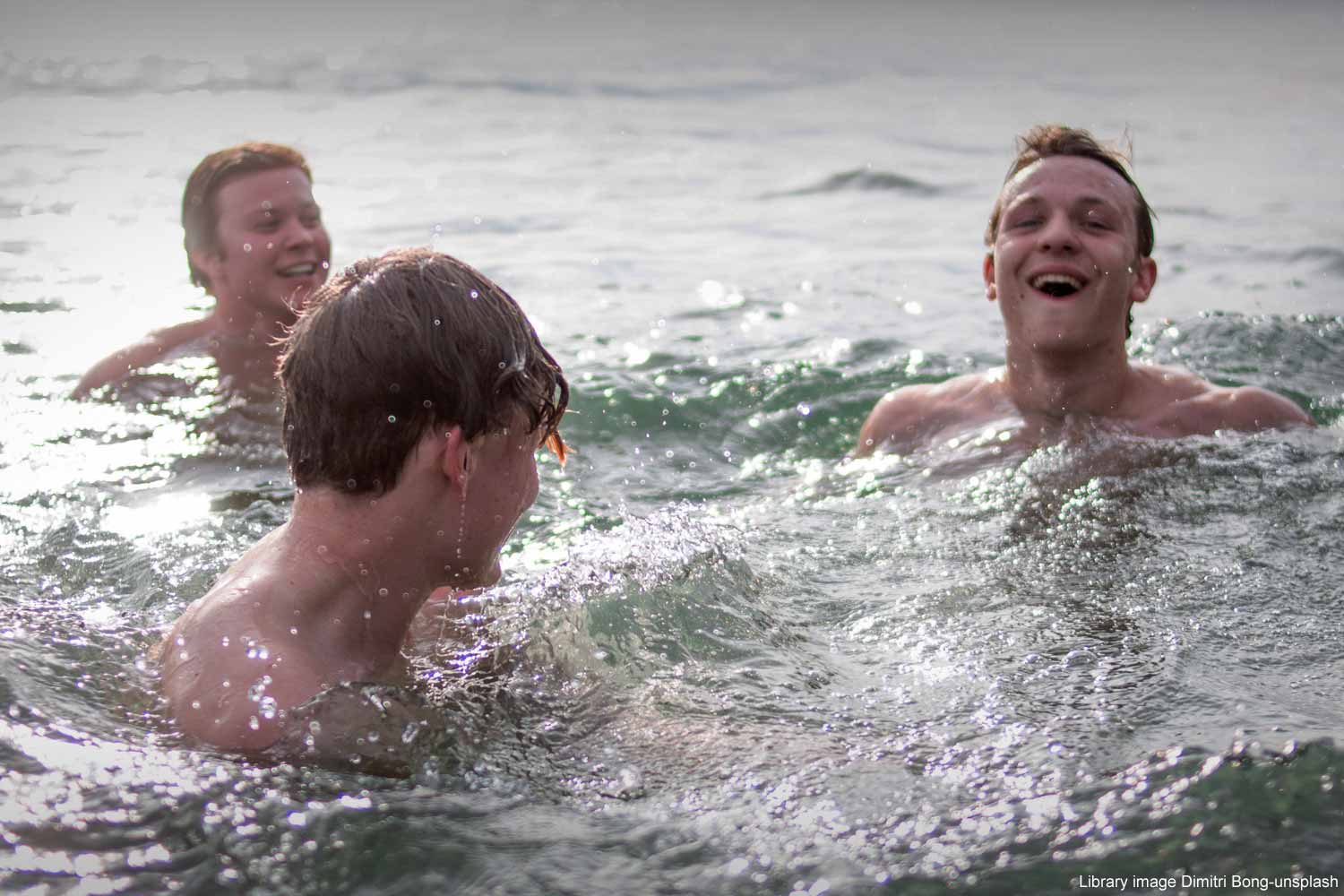HM Coastguard is calling on open-water swimmers and cold-water dippers to be prepared and follow safety advice before entering the sea this Christmas.

In a year when swimming pools have largely been closed, there has been a significant increase in people enjoying open-water swimming and cold-water dipping. There’s also been an increase of nearly 80% (79.81%) in calls for HM Coastguard’s help for swimming-related incidents – up from 436 between January and November 2019 to 784 for the same period in 2020.
Swimming in the sea is a tradition for many over Christmas and New Year but many organised events with safety marshalls have been called off this year. We are keen that the ever-growing number of swimmers and dippers are aware of the risks and know how to enjoy the activity safely, especially during the winter season.
Advice for cold-water dippers and open-water swimmers:
· Don’t swim alone
· Check the weather forecast and tide times
· Ensure you have warm clothes for before and after your dip
· Wearing a wetsuit will help increase your buoyancy and reduce the chances of suffering cold water shock
· Be seen – wear a brightly coloured swim cap and consider using a tow float
· Acclimatise to the water temperature slowly – never jump straight in
· Stay in your depth and know your limits
· If you get into trouble remember FLOAT to live by leaning back in the water, extending your arms and legs, and resisting the urge to thrash around to gain control of your breathing
· Take a mobile phone in a waterproof pouch
· If in doubt, stay out – there is always another day to go for a swim
· If you or someone else gets into trouble at sea or along the coast call 999 and ask for the Coastguard.
Coastal Operations Area Commander Matt Pavitt said: “Many people find that swimming in the sea and cold water dipping has physical and mental health benefits but please remember these activities can also result in cold water shock which is extremely dangerous.

“Cold water shock is a risk when the water temperature is 15 degrees Celsius and below. Our average sea temperature around the UK is just 6-10 degrees Celsius in the winter and the shock of cold water can catch out even the fittest and strongest of swimmers.
- From Coastal Cliffs to Prime Time: Folkestone’s Ancient Secrets Hit the Small Screen

- CCTV Appeal Following Criminal Damage to Car on Dover Driveway

- Firefighters Battle Major Blaze at Derelict Canterbury Building

“So we’re asking everyone to be fully prepared before entering the water and follow safety advice to stay as safe as possible.”
If you see anyone in difficulty at the sea or along the coast, please call 999 and ask for the Coastguard. We’re on call 24/7 all year round.
